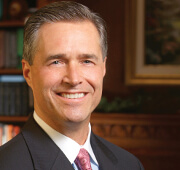
words of Christendom. The word evokes a
lot of different thoughts, but I think most Christians get the essence of stewardship
wrong.
They believe that if you give God a
bit of what you have, then you have been a good steward, and the rest is yours
to do with as you please. They equate
stewardship with “tithing.”
So today, as we approach the end of tax
season, when most of us think about how
we’ve handled our money in the past year, let’s consider what the Bible really
tells us about stewardship by examining the parable of the talents in Matthew
25.
Jesus says that the kingdom of heaven
is like a man who goes on a
journey and entrusts his possessions to his servants. Christ wants His
disciples to understand that He, the Master, plans to entrust them (and
ultimately you and me) with kingdom resources.
And when He returns, He will hold us accountable for how we handle them.
The
servant who was given five talents went out at once and put those talents to
work. Biblical stewardship has a sense
of urgency to it; it is not lazy or undisciplined. A good steward proactively
invests what God has given to him or her with the goal of seeing the best
possible return for the kingdom.
You
may remember the rest of the story. The first two servants double what they
have been given. The third, afraid of losing the talent entrusted to him, hid
the money while his Master was gone.
I
think a lot of Christians define stewardship by how well they save money, but
that is not good stewardship.
You
can save a lot of money but fail miserably as God’s steward because you have
lost the opportunity for impact. That
does not mean we should be foolish and irresponsible in how we spend
money. But it does mean that the
highest value in stewardship is not what you have saved, but how well you have
used what has been entrusted to you.
Stewardship is defined by risk, not by playing it
safe.
People
of faith understand that investing in God’s kingdom is worth the personal
risk. And they are willing to take the
risk of reducing their personal financial position in order to make an
investment that will have an impact and return for eternity.
But
I believe most Christians today do not really risk when they give. They play it safe. Research shows that only
2 percent or so of household income in the U.S. is given to charity – by Christians.
This
type of giving is based on the premise that only a portion of what we have
belongs to God, and that is what we will give to Him – after we’ve met our
other expenses.
But
that’s not the biblical model of stewardship.
It is based on an understanding that what we have is ALL His, and He
trusts us to invest it for the best possible return for the kingdom.
That
doesn’t mean that a nice house and car are necessarily bad. They may, in fact,
lead to advancing the kingdom in a way that makes them a great eternal
investment. And God tells us in
Ecclesiastes that when He gives wealth, He also gives the power to enjoy it.
But
the risk of stewardship comes down to priorities. We need to ask ourselves: “Am
I unwilling to risk giving too much of my money away to advance God’s kingdom
work?”
The
best stewards have the Master’s interests at heart, not their own, and are
willing to risk their own agenda and desires to invest heavily to get the best
possible return for Him. Stewardship operates in the freedom of God’s trust,
not in the fear of failure.
At
the end of the parable, the Master rewarded the best steward with the talent of
the one who was sent packing. Why?
Because he had proven himself faithful.
Rest
assured, if you are a good steward of what God has given you, you will be given
more to make an even greater impact for God’s kingdom.
This commentary is adapted from
“Secure: Discovering True Security in Turbulent Financial Times” by Rick
Dunham. He is the President and CEO of Dunham+Company, which helps ministries
with their marketing and fundraising needs.







Leave a Comment
You must be logged in to post a comment.